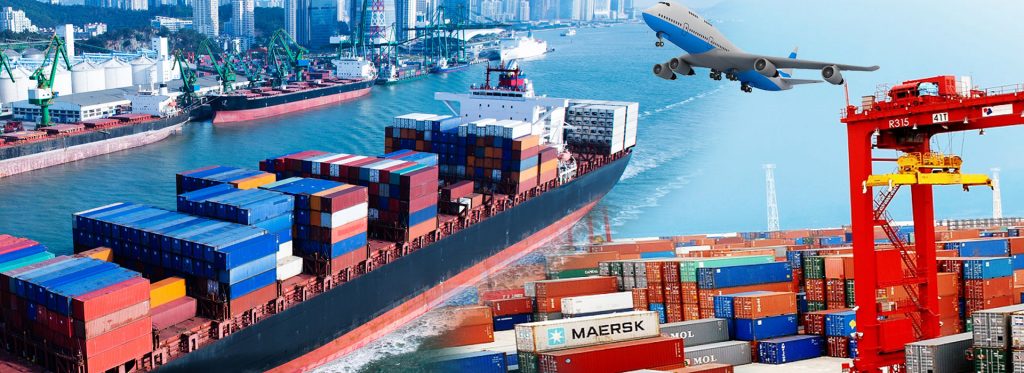

Table of Contents
ToggleInternational Cargo Shipping? As is the practice internationally, for every single international cargo shipping to Nigeria as the destination, there are a number of must-take handling and cargo clearance steps to bring the process to completion. Suppliers or sellers of the goods should understand clearing steps clearly. Yes, even the importer or the buyer. The reason is due to cost implications embedded in all stages.
INTERNATIONAL CARGO SHIPPING: FOCUS OF ARTICLE
This article will focus on the cargo handling and clearance steps from the seller’s position or location to the point of exit at the departure port in the supply country.
Read Also: NIGERIA IMPORT REQUIREMENT
Notice that I have consistently tried to avoid using the terms country of origin and country of supply interchangeably in my articles. I will tell you why in another article for proforma invoice. In my next article, I will deal with the rest of the handling stages until deliverance at the buyer’s position or location of interest.
INTERNATIONAL CARGO SHIPPING: EXPORT HANDLING/CLEARANCE
Finding Freight Forwarder:
The supplier can help do this for you and engage the nearest seaport. Otherwise, contract to Vagmon e-Grup & Logistics Ltd.
Movement of Goods from Supplier’s Location to Freight Forwarder:
Who pays for this cargo transfer to the forwarder’s warehouse depends on the agreement. If the importer is to pay for this haulage, then using international Commercial terms, we say the agreement is ex works. Most often than not, freight forwarder arranges on behalf of the buyer for this export haulage. Unless otherwise, the buyer has a local presence in the country of supplier and can arrange trucking by himself. Sometimes, the haulage is simply from the supplier’s warehouse to the port of loading directly. As part of our services, we negotiate for best freight forwarders and export haulage from a wide range of countries.
Customs Clearance at the Country of Supply:
This is export customs clearance, and is often the duty of a Customs licensed Clearance vendor or broker. What is best is for the shipper or consignor to arrange with the freight forwarder or the clearance vendor. Unless the consignee has a local presence in the supply country. Essentially, the financial implications that need definition here are in the form of the following:
- Customs examination, Inspection and associated fees, for example movement of the container or freight to the inspection bay.
- The Customs duties and taxes if applicable.
- Quarantine inspection.
- Fees for treatments as ordered by Government Quarantine Inspection Service.
- Payment of any Customs duties, taxes, storage, demurrage, detention or insurance fees
Hence, your agreement with the seller should include all of the above.
Export documentation:
International cargo shipping requires the following documentations.
- For commercial shipments what are usually required are copies of the supplier’s invoice and packing list. These can either be faxed or post copies.
- The importer and shipper will also supply the export clearance vendor or freight forwarder with the VAT or Tax Identification Number.
- Marine cargo insurance; this is optional, and may be arranged and paid for.
- The responsible Customs agent or freight forwarder can also arrange consular documents, certified invoices and certificates of origin etc.
Read Also: CUSTOMS CLEARING DOCUMENTS NIGERIA: COMPLETE SET
Further cargo handling at the supply country:
The freight forwarder or an agent of his continues with range of other activities normally referred to as cargo handling. This activity begins with receipt and unloading of cargo from truck, counting, staging, validation against booking, issuance of the forwarder’s receipt, etc. Again, the freight forwarder would have to stack the cargo and all other shipment going on the same container before moving it to the shipping line container, and to the vessel at the port. Agreement should reveal who pays what at all stages to avoid some pleasant surprises.
INTERNATIONAL CARGO SHIPPING TO NIGERIA: Shipping Proper
The freight forwarder may also be in the business of shipping proper, and has a shipping line or vessel. Otherwise, he contracts a liner (a company that owns or hires vessel to move cargoes). A house bill of lading is from the freight forwarder, and states the vessel and voyage number. It does not matter if the cargo will be trans-loaded from one vessel to another along its route. The consignee depending on the importation agreement pays the freight cost.

In Conclusion:
With this article, we have discussed cargo handling and clearance steps from the country of supply to the exit at the departure port. We have seen that every international cargo shipping to Nigeria undergoes steps. Export haulage, documentations, export cargo clearance, supply handling and freight forwarding, are usual, with cost implications at each stage. The importer and exporter are wise to take a holistic look at the process cost and draw a workable agreement, including who pays what.
Watch also;



